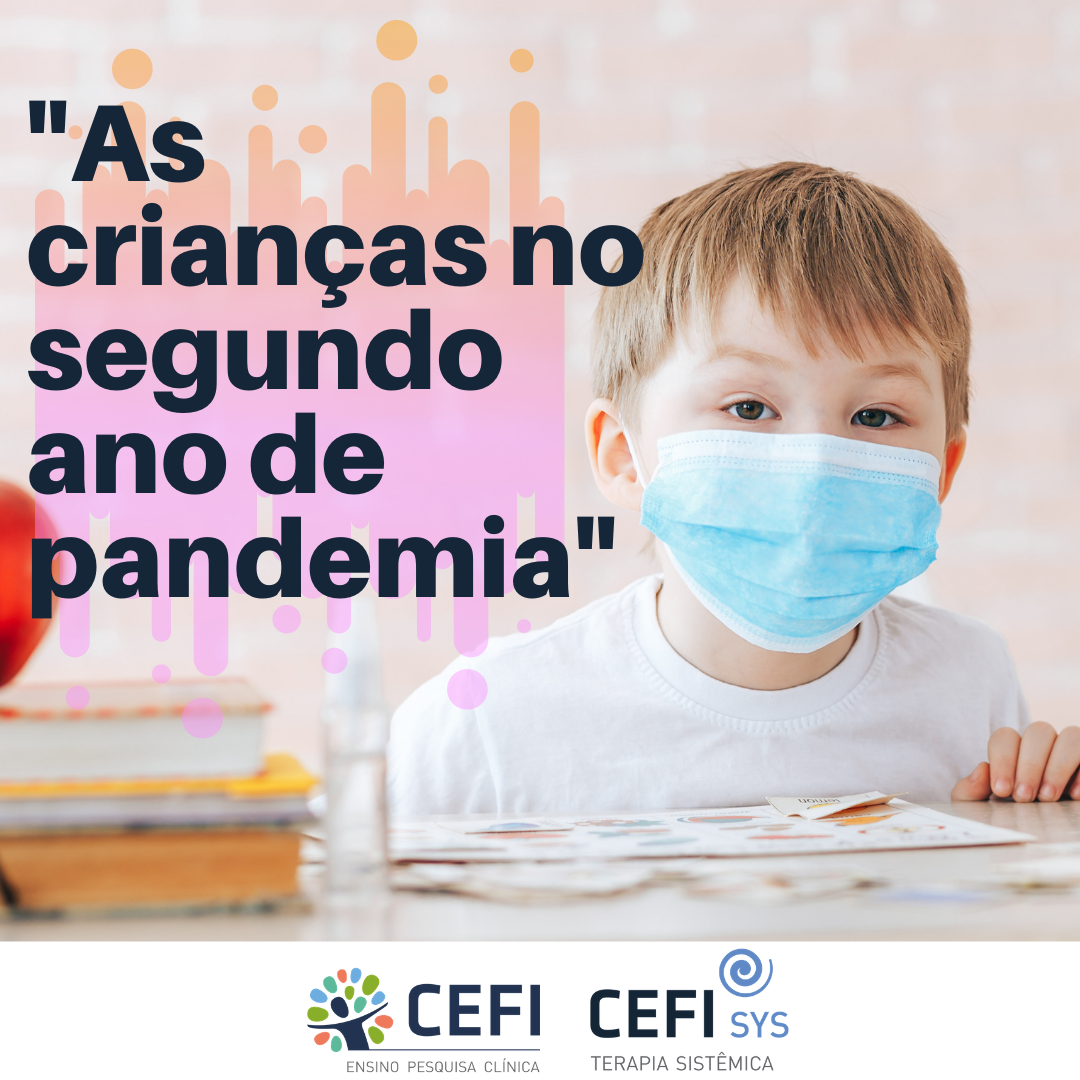Children in the second year of pandemic

by Juliana Potter - Psychologist and member of the SYS nucleusIt is evident that we are all suffering in some way by the impacts of the pandemic. However, some studies already point out that certain populations seem to suffer even more. Among children, pre-teens are those that demonstrate greater emotional and social difficulties. This is because they are in a phase of intense socialization but, unlike the older ones, they are still exploring communication through technologies and gradually strengthening their relationships with age pairs.
At that time, in clinical practice with children, it is frequent to listen to reports on sleep difficulties, excessive concerns and with others, fears, appetite changes, inattention and problems to accompany school content. It is important that adults seek to understand and adapt their expectations realistically, contextualizing the child's reactions and observing three fundamental points: frequency, intensity and duration of symptoms. Often, adults charge things from children who, neither themselves are able to do at that time, the most illustrative example of this moment is to wait for the child to be aware and seated for four or more hours in front of the screen of an electronic device Classes in online format.
We are all feeling the loss of something or someone. We can say that we are all bordered by our life as it was before the pandemic and with children is no different. As in the whole process of mourning (regardless of referring the loss of a person, routine, security perception, coexistence with people and other losses for which we are all passing), at times we are facing the We lose and, in others for restoration. So we can not wait for children a linear expression.
Adults can contribute positively, helping the child naming and trying to understand what happens to her, asking for gentle questions and with adequate language to the child universe. It is also very important to validate and welcome all feelings and thoughts, it is not wrong to feel anger or fear, for example. Always making it clear that the child is not alone, that adults are taking care of it and that together we will find ways to deal with adversities imposed by the pandemic.
However, as each family faces distinctly adversities, it may also be interesting that parents seek a professional to guide them to find the best way to help your child.

